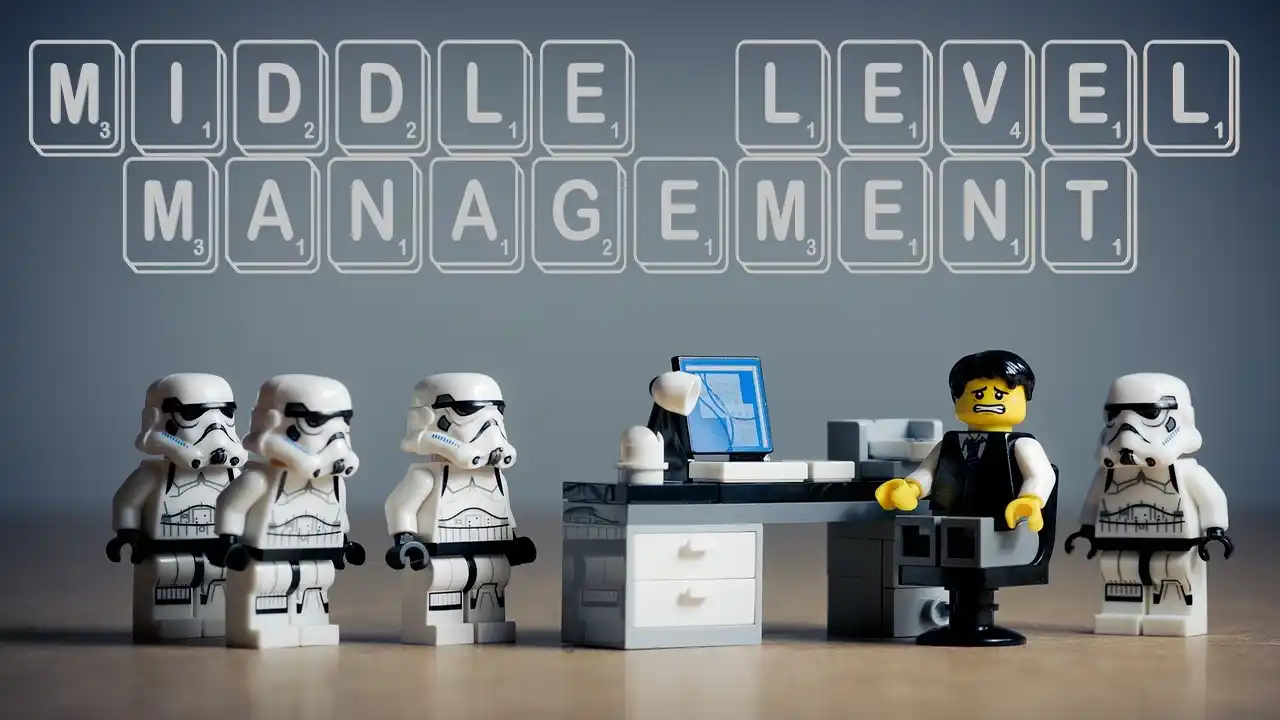The Importance Of Middle Management: Benefits For Companies And Their Staff

Table of Contents
Improved Communication and Collaboration
Middle managers are the linchpin connecting leadership's vision with the day-to-day operations of teams. Their role in facilitating communication and collaboration is paramount for organizational success.
Bridging the Gap Between Leadership and Employees
Middle managers act as a vital link, translating top-level strategy into actionable goals for teams and relaying employee feedback upwards. This two-way communication stream is essential for effective organizational functioning.
- Improved information flow: Reduces misunderstandings and ensures everyone is on the same page, fostering a shared understanding of company objectives and individual roles. Clear communication from middle management minimizes the risk of misinterpretations and wasted effort.
- Enhanced feedback mechanisms: Facilitates open communication and constructive criticism, allowing employees to voice concerns and contribute ideas. This open dialogue creates a more engaged and productive workforce. Middle managers can act as advocates for their teams, ensuring their voices are heard by upper management.
- Faster problem-solving: Enables quicker identification and resolution of issues. By acting as a point of contact for both employees and leadership, middle management can efficiently address problems before they escalate, saving time and resources.
Fostering Teamwork and Collaboration
Middle managers cultivate a collaborative environment, promoting teamwork and shared responsibility within their teams. They create a culture of support and mutual respect.
- Building strong team dynamics: Creating a supportive and inclusive work environment where team members feel valued and respected. This involves actively fostering relationships and promoting a sense of belonging within the team.
- Delegating effectively: Empowering team members and fostering a sense of ownership by entrusting them with responsibilities and providing the necessary autonomy. This boosts individual morale and team efficiency.
- Conflict resolution: Addressing conflicts promptly and fairly, preventing minor disagreements from escalating into larger problems. Middle managers act as mediators, helping team members find common ground and maintain a positive working relationship.
Increased Productivity and Efficiency
Effective middle management is directly linked to increased productivity and efficiency throughout the organization. Their role in strategic resource allocation and performance management is critical to achieving organizational goals.
Strategic Resource Allocation
Middle managers are responsible for optimizing resource allocation, ensuring teams have the tools and support they need to succeed. This involves careful planning, prioritization, and efficient resource utilization.
- Efficient task management: Prioritizing tasks and setting realistic deadlines, ensuring that projects are completed on time and within budget. This requires strong organizational skills and a clear understanding of team capabilities.
- Monitoring progress: Tracking team performance and identifying areas for improvement. Regular monitoring allows for timely intervention and adjustments to ensure projects stay on track.
- Optimizing workflows: Streamlining processes to increase productivity. Middle managers identify bottlenecks and inefficiencies, implementing solutions to improve team efficiency.
Performance Management and Development
Middle managers play a crucial role in monitoring individual and team performance, providing constructive feedback and facilitating professional development. This contributes significantly to employee growth and overall organizational success.
- Regular performance reviews: Providing constructive feedback and identifying areas for improvement, guiding employees toward growth and development.
- Mentorship and coaching: Supporting the growth and development of team members, providing guidance and support to help them reach their full potential.
- Identifying training needs: Ensuring employees have the skills and knowledge necessary to excel in their roles, investing in employee development to enhance skills and improve performance.
Enhanced Employee Engagement and Retention
Strong middle management is a key driver of employee engagement and retention. By building positive relationships and fostering a supportive work environment, they contribute significantly to employee satisfaction and loyalty.
Building Strong Relationships
Effective middle managers build strong relationships with their team members, fostering a sense of trust and loyalty. This is achieved through open communication, recognition, and support.
- Open communication and accessibility: Creating a culture of open dialogue and support where employees feel comfortable sharing their thoughts and concerns.
- Recognizing and rewarding achievements: Celebrating successes and acknowledging hard work, boosting morale and fostering a sense of appreciation.
- Promoting work-life balance: Supporting employee well-being and preventing burnout by encouraging a healthy balance between work and personal life.
Fostering a Positive Work Environment
Middle managers contribute significantly to creating a positive and supportive work environment where employees feel valued and appreciated. This leads to higher job satisfaction, improved morale, and increased productivity.
- Promoting team cohesion: Fostering a sense of camaraderie and teamwork, creating a collaborative and supportive atmosphere within the team.
- Addressing workplace issues: Responding effectively to concerns and resolving conflicts, creating a sense of fairness and trust within the team.
- Promoting diversity and inclusion: Creating an equitable and inclusive workplace where all employees feel valued and respected.
Conclusion
Investing in strong middle management is an investment in the overall success of your company. Effective middle managers are instrumental in improving communication, boosting productivity, and cultivating a highly engaged workforce. By nurturing and supporting your middle management team, you are directly impacting the performance, morale, and ultimately, the profitability of your organization. Don't underestimate the value of strong middle management; prioritize their development and empower them to lead your teams to success. Invest in your middle management today, and reap the rewards tomorrow.

Featured Posts
-
 Xrps Future Analyzing The Secs Classification And Its Impact
May 01, 2025
Xrps Future Analyzing The Secs Classification And Its Impact
May 01, 2025 -
 Addio A Mario Nanni Un Maestro Del Giornalismo Parlamentare Ci Lascia
May 01, 2025
Addio A Mario Nanni Un Maestro Del Giornalismo Parlamentare Ci Lascia
May 01, 2025 -
 The Public Response To Michael Sheens 1 Million Charity Documentary
May 01, 2025
The Public Response To Michael Sheens 1 Million Charity Documentary
May 01, 2025 -
 Phipps Aussie Rugbys Dominance Questioned
May 01, 2025
Phipps Aussie Rugbys Dominance Questioned
May 01, 2025 -
 App De Ia Da Meta Conheca O Rival Do Chat Gpt
May 01, 2025
App De Ia Da Meta Conheca O Rival Do Chat Gpt
May 01, 2025
